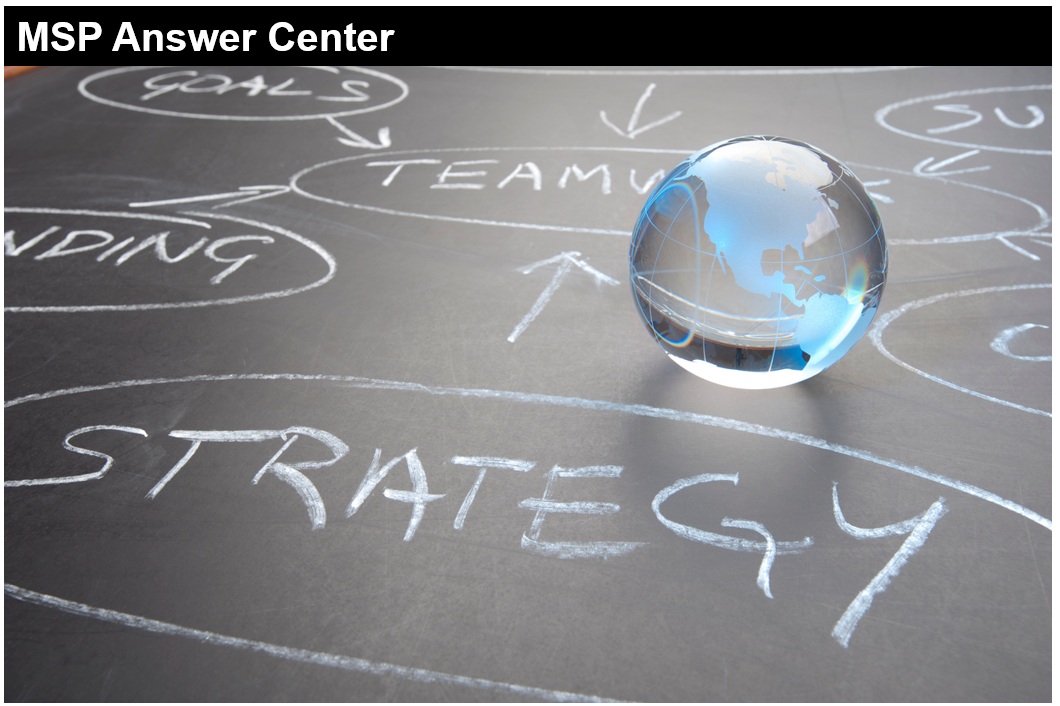When an engineer develops a plan for a home or an office building, the main focus will always be forming the sturdiest foundation possible—after all, a great building cannot be built on a weak one. Build a business with a solid base, one that is modeled in consistency, intentionality, and solidity, and that business will withstand—and even continue to grow—in the most challenging seasons.
I’ve been working in the MSP world for almost two decades, helping hundreds of businesses grow their managed services. In that time, I’ve witnessed what makes a business scale well and what elements tend to limit MSPs from reaching their full potential. Here are some answers to the top five most common questions I hear from MSP owners seeking to scale their business.
Q: My MSP does about $4 million in business a year, but we’ve seemed to plateau in the last two years or so. How can we get “”unstuck””?
One of the biggest barriers to growth for MSPs is an overreliance on “”muscle and feel.”” Too many MSPs rely on their own sweat equity for too long and are unable to allocate responsibility and trust to anyone other than those first few founders. They think they can just work overtime forever. But this is not the right way to grow and scale a business. I’ve had many MSP owners express their doubt that anyone can do a better job than them—and while that might be true in the moment, not allowing others the “”freedom to fail”” will only result in constantly hitting a ceiling.
If you feel stagnant, get comfortable with failure; hand off ownership of KPIs to certain people, train them with patience, and allow them to fail in a context that wouldn’t completely destroy the business. It will take some time to find the right balance between “”dump and run”” and micromanagement—I’m talking a year to 18 months—but the only way you will experience growth successfully is by scaling your team effectively and managing to what good looks like.
Q: Our selling pattern has gotten to the point where we are saying “”yes”” to anything and everything. How can we achieve new customer and revenue growth without overloading ourselves?
Ever heard the term AFAB (anything for a buck)? Many MSPs think having more agreement types, more roles, and more options will lead to more customers. This will sound counterintuitive, but the earlier you say “”no”” to customers, the better. Achieving operational maturity does NOT mean saying yes to more things. It means finding a way to do fewer things more profitably for more clients. Getting away from the AFAB mindset means figuring out what you’re NOT going to do and clearly defining what you WILL do, then building a customer base that will fit those objectives. You can’t be everything to everyone. Specialization is invaluable.
Q: How can we best handle the talent shortage right now? Are there benefits to outsourcing work, and how should we manage outsourced staff?
Actually, you shouldn’t need to worry about a so-called global talent shortage. That’s because a lot of the work you do as an MSP should be consistent and predictable enough that most of your staff won’t need specialized training and technical backgrounds. The more consistent a product set and the less complicated your support environment becomes, the less technical and talented your staff need to be. When you have a limited number of offerings that your techs have to support day-to-day, the easier it is to explain to them what they need to do and how to do it.
What comes next, of course, is the right way to manage outsourced support staff. Don’t practice a “”set it and forget it”” approach, but rather, properly manage the relationship with frequent quality checks and routinely refresh training.
Q: As our business grows, I’d like to get out of a sales role and focus solely on growth and strategy, but I’m wary of the impact it will have on our existing valued customers. How do I go about transitioning sales responsibilities to my staff?
Short answer: You don’t, at least not yet. A lot of owners want to get out of sales, so they try to put a sales staff in place before they’re ready. The problem is that owners like to buy from owners, not young, amateur salespeople. I’d encourage you to maximize your sales ability as an owner before rushing into delegation. Do more with your time by hiring admins to assist in scheduling and follow-ups. Budget more for marketing so that you’re working with higher-quality sales leads. When your company gets to a maturity level where you don’t feel as wary of placing new salespeople in your seat, then you can look at expanding into a different role.
Q: We are considering merging with another provider in the coming months. How can we make that transition as smooth as possible?
M&As are a great way to scale your business, but as with anything, there are ways to maximize its effectiveness long term. First, make sure the company with which you are merging is close in maturity level with yours. Take, for example, a company that’s white-glove service level and another that tends to wing it. It’s difficult to merge client bases with two very different codes of conduct. You can’t just merge the books; you need to merge the process, the people, and the product. Don’t underestimate the integration work that goes into mergers. However, if you put the right level of ownership into properly integrating everything on the back end, you will see greater success in the transition.
I’d encourage any owner looking to overcome revenue margin and achieve greater gains to explore all avenues of knowledge. Consider getting involved in peer groups. Ask other owners what they’re doing to grow. Good ideas often come from other people—you can learn from their successes and failures and avoid some headaches along the way. When you master the ability to work smarter, not harder, you will get to a place where your business can experience the most growth.
Take it from Bob Dylan when he sings, “”May you have a strong foundation when the winds of change shift.”” While you may want to keep the “”forever young”” mentality intertwined in your businesses, be sure to be simultaneously working toward operational maturity and growth.
BRAD SCHOW is vice president of consulting services at ConnectWise.












